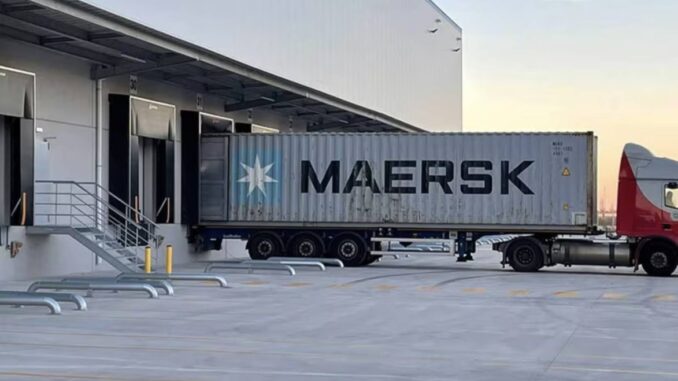
MAERSK is addressing the increasing disruptions in global logistics by building more resilient and predictable supply chains.
Challenges like port congestion, labor unrest, and other supply chain disruptions are driving the need for smarter logistics solutions. In 2025, businesses will need to adopt integrated strategies and advanced technologies to manage risks effectively.
Maersk, an integrated container logistics company, aims to reduce risks at traditional chokepoints. Maersk’s Network of the Future, a modular hub-and-spoke model, minimizes port calls and uses advanced hubs and dedicated shuttles to improve supply chain reliability to achieve over 90 percent schedule reliability.
A Maersk logisics center. PHOTO FROM MAERSK
Businesses are diversifying suppliers, optimizing inventory management and exploring nearshoring or nearsourcing to enhance resilience. Segmenting supply chains and considering multi-modal transportation options are also prioritized to increase flexibility.
Maintaining cost-effectiveness while building resilience is essential. Maersk’s approach ensures that businesses meet customer expectations and maintain operational efficiency. This investment in resilience helps businesses stay competitive by enabling faster reactions to disruptions.
Maersk is also updating its contracting models to offer guaranteed, market-relevant rates. This provides businesses with stability in volatile market conditions, ensuring smooth logistics operations.
In the Asia-Pacific region, lead logistics providers (LLPs) are becoming key partners. LLPs offer end-to-end management, improved visibility, and integrated technologies such as application programming interfaces and cloud systems, helping businesses optimize operations, reduce costs, and manage risks effectively.


Be the first to comment